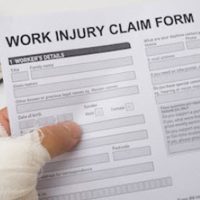What Should You Expect at Your Workers’ Compensation Hearing?

After suffering a work-related injury in Vermont, an employee can recover workers’ compensation benefits from their employer’s workers’ compensation insurer. However, the process of recovering workers’ compensation benefits is rarely an easy one. Workers’ compensation claims are denied all the time for various reasons. In other cases, injured workers are offered way less than they deserve. Fortunately, if your workers’ compensation claim is denied or the insurance company offers you fewer benefits than you deserve, you have the right to appeal the decision. In Vermont, disputes about whether you are entitled to workers’ compensation benefits or how much you are entitled to can be resolved through a settlement. However, if your case cannot settle, you can go to a formal hearing. This article discusses what you should expect at your workers’ compensation hearing.
What to Expect at Your Workers’ Compensation Hearing
In Vermont, the formal hearing is usually the third stage of the dispute resolution process. It comes after mediation and discovery. In Vermont, most cases are required to go through mediation before the hearing. Mediation is where you and your employer or the insurance company work with a neutral third party (a mediator) to try and reach an agreement. However, the mediator cannot force you to settle your case. On the other hand, discovery is the process of gathering information about each other’s cases before the formal hearing. Usually, the discovery phase involves two things; depositions and interrogatories. A deposition is where parties are questioned under oath, while in interrogatories, parties are given written questions that they need to answer under oath. Information gathered through depositions and interrogatories can be used in the formal hearing.
While the hearing is called a “formal hearing,” it takes place in an informal setting. However, the laws governing the hearing are formal. For example, you must inform the insurance company’s attorney about what documents you plan to submit and provide them with copies before the hearing. Otherwise, your documents may not be accepted as evidence.
When it comes to testifying at the hearing, before you can do so, you will be put under oath to tell the truth. After you have been placed under oath, your attorney and the insurance company’s attorney will question you. The judge might also question you. Regardless of who is questioning you, ensure you are honest. If you don’t know or are unsure about an answer, do not guess. Remember, not only is the judge looking at how truthful you are, but they are also looking at how credible you are.
Finally, you can expect that you and the insurance company will have an opportunity to call witnesses to testify in person or present written witness testimonies and ask witnesses questions.
Once a decision has been made and you disagree with it, you can appeal it. In Vermont, the decision made after the formal hearing can be appealed to the Superior or Supreme Court, depending on the matter being appealed.
Contact Us for Legal Help
Need help with your workers’ compensation claim? Contact our Vermont workers’ compensation attorney at Sluka Law PLC.
